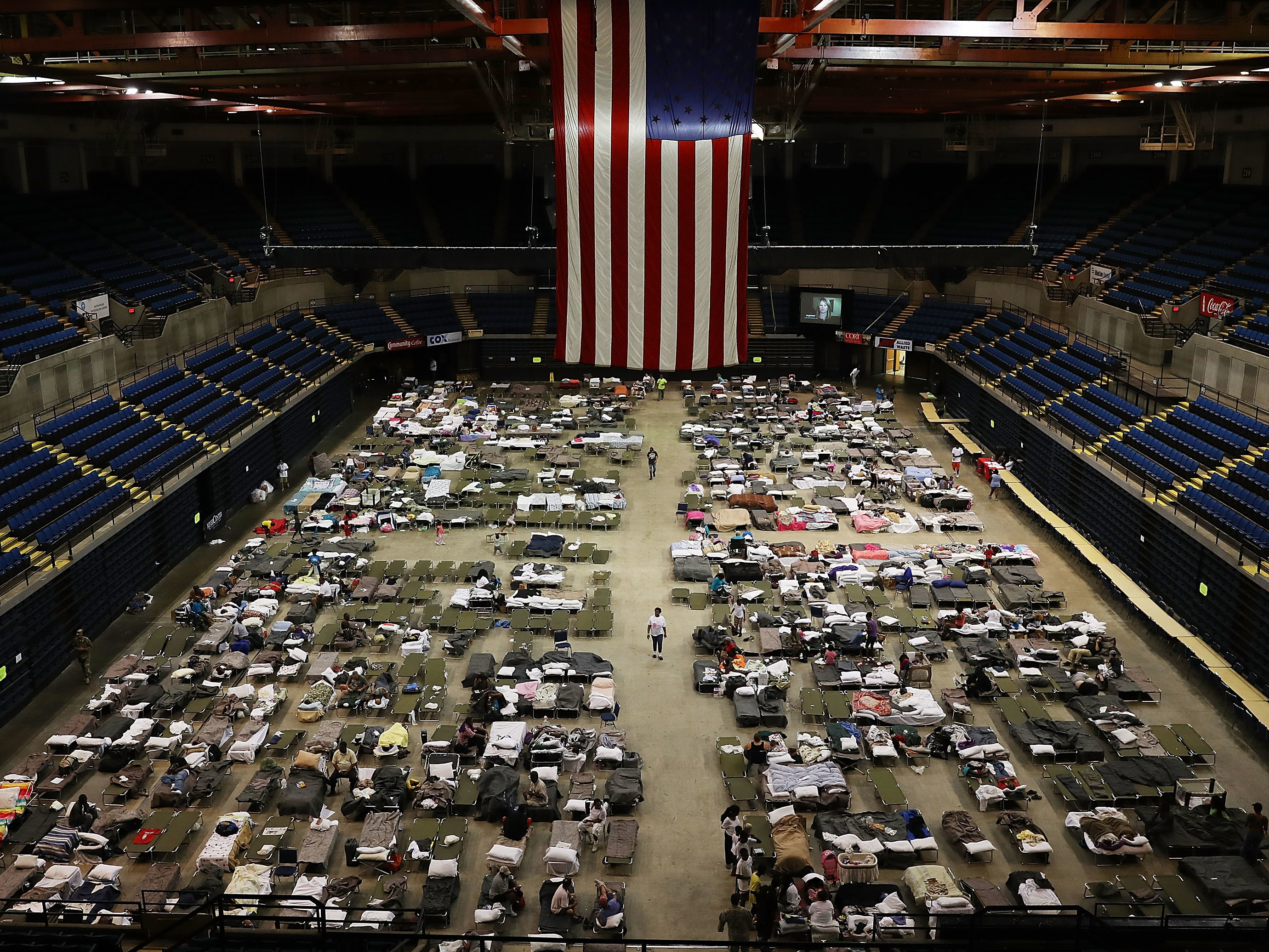More than a week after record-breaking rain inundated 20 parishes in southeastern Louisiana, President Obama is visiting the state to survey the damage.
The president, who has come unde

r criticism for not visiting the area sooner, is toured an affected neighborhood in East Baton Rouge Parish on Tuesday afternoon.
At least 13 people died in the flooding from a Gulf storm that hit the area Aug. 11 and lingered for days. The Red Cross estimates the recovery will cost at least $30 million. President Obama signed a Louisiana disaster declaration on Aug. 14, making federal disaster funding available.
Homeland Security Secretary Jeh Johnson visited Baton Rouge on Thursday. His agency is in charge of the federal disaster response.
The White House released a statement Friday afternoon announcing Obama’s trip, saying, “The President is mindful of the impact that his travel has on first responders and wants to ensure that his presence does not interfere with ongoing recovery efforts.”
That same day, Republican presidential nominee Donald Trump and running mate Mike Pence visited areas affected by the flood. Democratic nominee Hillary Clinton, who has not toured Louisiana, released a statement saying that “relief efforts can’t afford any distractions” and urging people to donate.
As NPR’s Domenico Montanaro reported at the time:
“The president has been on vacation in Martha’s Vineyard and has faced some criticism for not visiting Louisiana. A Louisiana newspaper, The Advocate, wrote in an [Aug. 17] editorial:
” ‘Sometimes, presidential visits can get in the way of emergency response, doing more harm than good. But we don’t see that as a factor now that flood waters are subsiding, even if at an agonizing pace. It’s past time for the president to pay a personal visit, showing his solidarity with suffering Americans.’
“The Democratic governor of the state, John Bel Edwards, though, has said he has no problem with the president not having visited or the federal response.
” ‘I’m not complaining in any way about our federal partnership,’ Edwards said in a news conference Thursday.”
In a subsequent editorial today, the Advocate welcomed Obama’s visit and called on him to address the housing crisis created by the flood devastation.
The newspaper writes:
“Thousands of displaced homeowners pose the biggest threat to the region’s recovery, and some form of housing assistance beyond what FEMA’s rules presently allow will almost certainly be necessary. The president can be a key voice in championing that goal.
“A flood that left much of the region underwater means a huge impact on the federal flood insurance program. Now, more than ever, homeowners and businesses will need affordable flood insurance to draw investment to the region. Access to flood insurance is important not only to Louisiana, but communities across America that could easily be surprised by a flood of their own. The president can use his bully pulpit to promote a sustainable flood insurance program as a national priority, and we hope he does so.”
Only about 12 percent of homes in Baton Rouge are covered by flood insurance. In an interview with NPR last week, Louisiana Insurance Commissioner Jim Donelon said, “The average cost of insuring a home in Louisiana is, for many, a budget-buster.”
He also expressed hope that the recent flooding, which the National Weather Service estimates should theoretically occur only once every 1,000 years, will persuade more homeowners to take advantage of federally subsidized flood insurance programs.
“I live in metropolitan New Orleans, and we have had so-called 100-year floods every five years since 1979,” Donelon said. “Those experiences have taught property owners in the metro New Orleans area that it is worthwhile having that coverage.”
9(MDEwMjQ0ODM1MDEzNDk4MTEzNjU3NTRhYg004))
